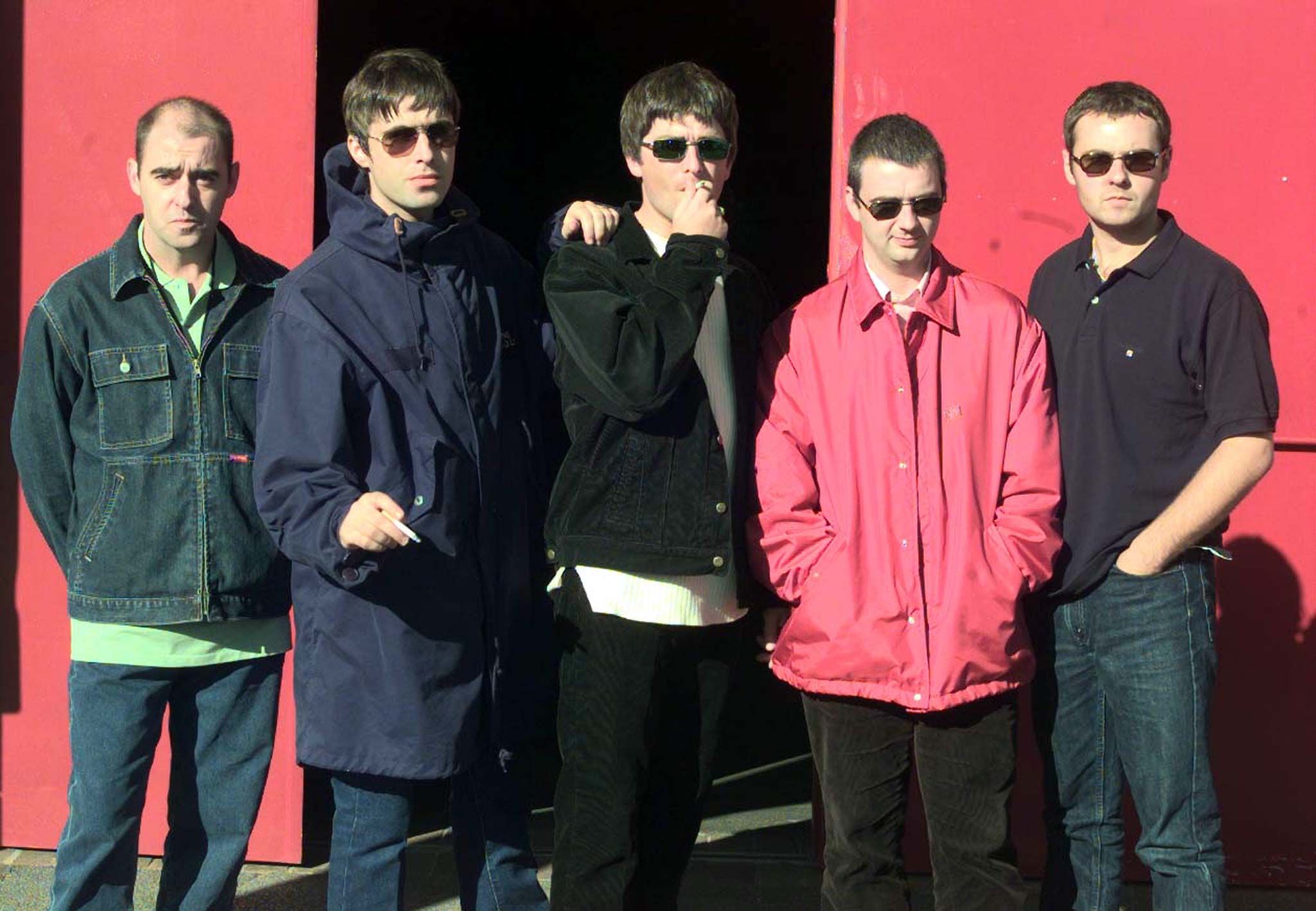
Things are going to be different when Oasis takes over. The British pop-rock outfit debuted in 1994 with "Definitely Maybe," a fabulously cocky, shamelessly Beatlesy album that gave rock and roll a swift kick in the angst. ("I'm feeling supersonic / Give me gin and tonic.") Their follow-up, "(What's the Story) Morning Glory?" is a richer showcase for singer Liam Gallagher's serrated John Lennonish voice and his brother Noel's increasingly ambitious songwriting. For the past half dozen years, American fans have said no to virtually every new British band. Oasis isn't asking. Their new album has just bounded to No. 5 on the strength of their acoustic ballad "Wonderwall," and they'll begin a tour here next month. Recently Noel chatted with Newsweek's Jeff Giles. Some excerpts:
You're superstars in England. Now important was conquering America?
NOEL: We want to be the biggest band in the world, so you've gotta have America, haven't you? But it was a pleasant surprise. It's good to see you people catching up with Europe.
Famous American bands tend to hate being famous. What do you think of people like Nirvana and Pearl Jam?
If you can't enjoy being in a job like this, then you've got big f—ing problems. You know what I mean? It's better than working in a carwash. What do these people want out of life if they don't want to travel the world, meeting loads of interesting people, playing music and getting paid extremely well for it? What do these f—ers want?
Eddie Vedder seems to want fewer fans and more control over his career.
To make music for your little closet of people—that might be very cool. But we'd rather be sitting on the back of a great big machine that's just hurtling out of control.
How will you know when Oasis is the biggest band in the world?
I want to get in the back of a cab in New York City and have the taxi driver know exactly who I am. We're already massively famous in Europe.
Do you have any idea why British bands have done so badly in the States?
Sure; it's because they're not very good. That's basically what it is.
But they all thought they were going to take over the world: Stone Roses, Suede. . .
Yeah, but them bands were not prepared to go and work at it. They went over [to the U.S.] and done like six gigs and pissed off home again. Then they were upset that their records weren't selling! And it was like, "It's because you've not worked." You got to go and play the badlands, man, and down South and all that s--t. You've got to do your Midwest and your cowboys, and all the rest of it. I mean, it's a f--ing bummer doing it, but that's what you've got to do.
Were people surprised by how different your albums are?
They were surprised how quickly we'd grown up in musical terms. "Definitely Maybe" was basically a guys' album--everything was turned up to 10. "Morning Glory" is a bit more thought out, a bit more laid back and a lot better.
How do you account for the jump in your songwriting?
Dunno. It's a gift, mate, in' it? It just comes.
Oasis is getting famous for drug references. American rock stars tend not to rhapsodize about drugs to the press.
People are so serf-righteous and serf-conscious. People in your country—hey're all into God and all that s—t, aren't they, man? They're all scared of dying, aren't they?
You're also famous for Beetles references. Do you ever worry that some of your songs sound too much like somebody else?
For about five seconds, yeah. Then I think, "Oh, f—it, man." I just let other people make their own minds up.
"Wonderwall" is the title of an old George Harrison solo album. What's the word mean to you aside from that?
Um, it's just a really good word. You know: wonderwall. I suppose it could represent someone you love. They could be your wonderwall.
You've met Paul McCartney, haven't you?
I met him at a party in his house in St. John's Wood. He knew the names of some of our songs. I was surprised by that--imagine being in the Beatles, and listening to other bands. He said, "Aren't you in that band Oasis?" And I was like, "Weren't you in. . . the Bestirs?"
Uncommon Knowledge
Newsweek is committed to challenging conventional wisdom and finding connections in the search for common ground.
Newsweek is committed to challenging conventional wisdom and finding connections in the search for common ground.





